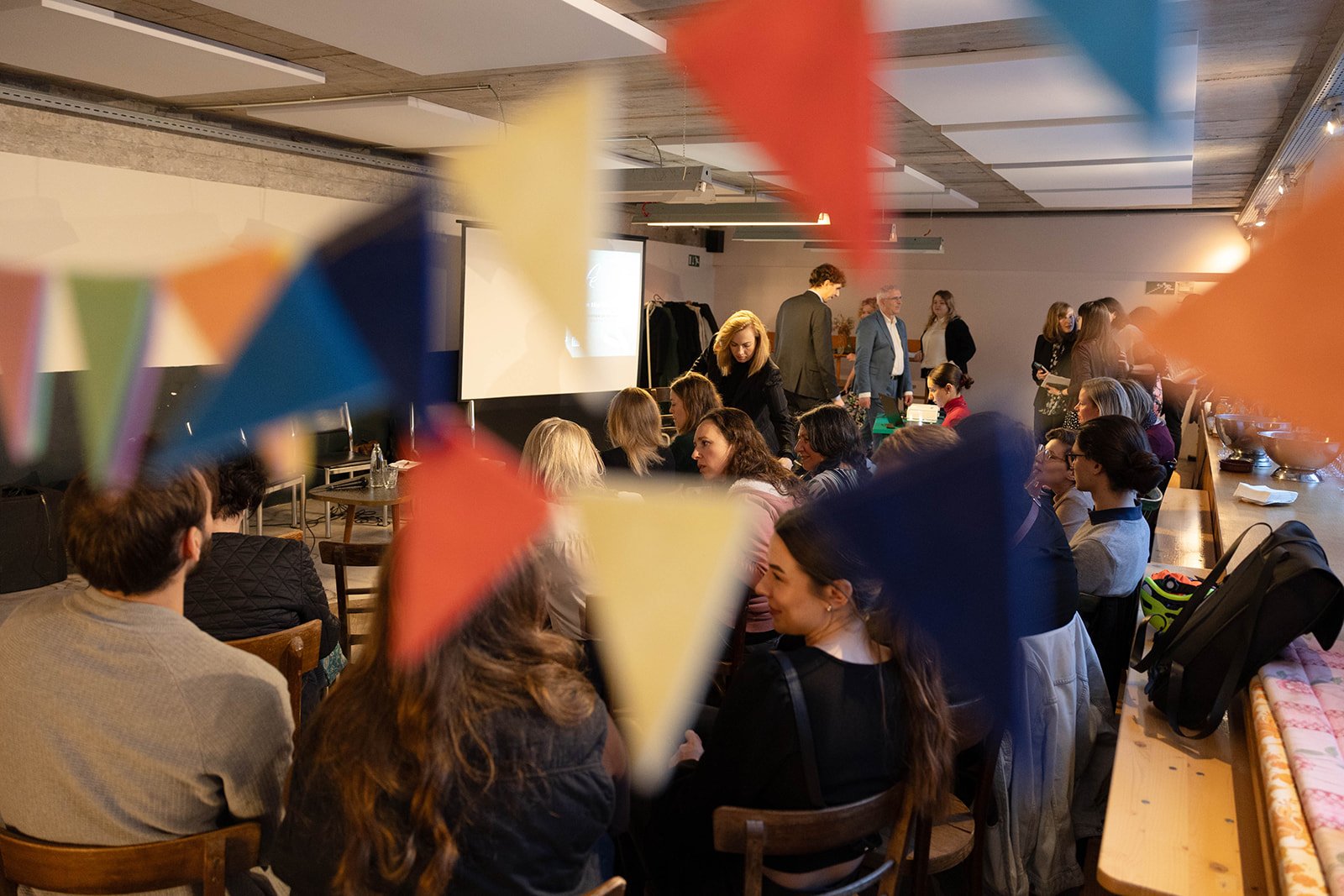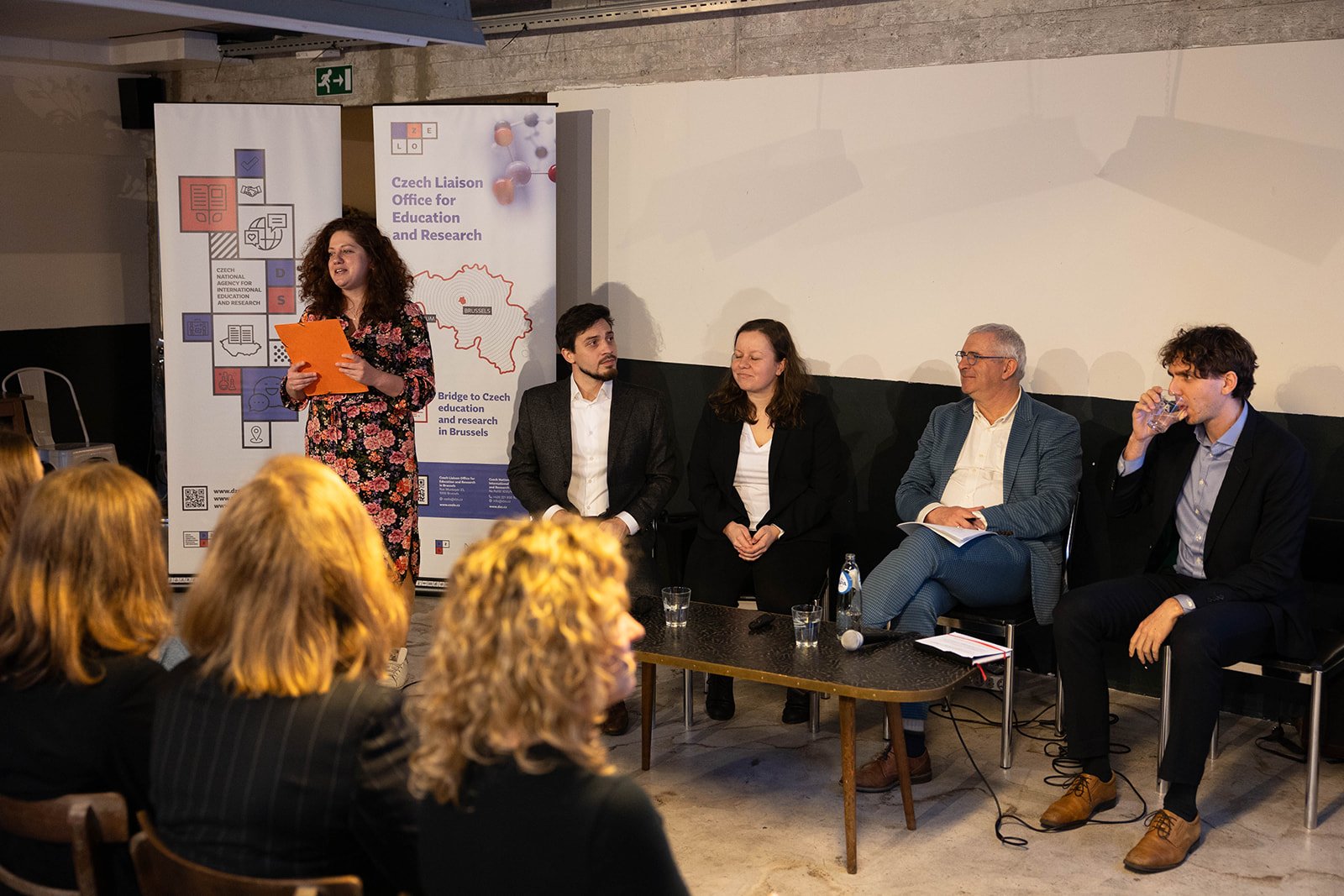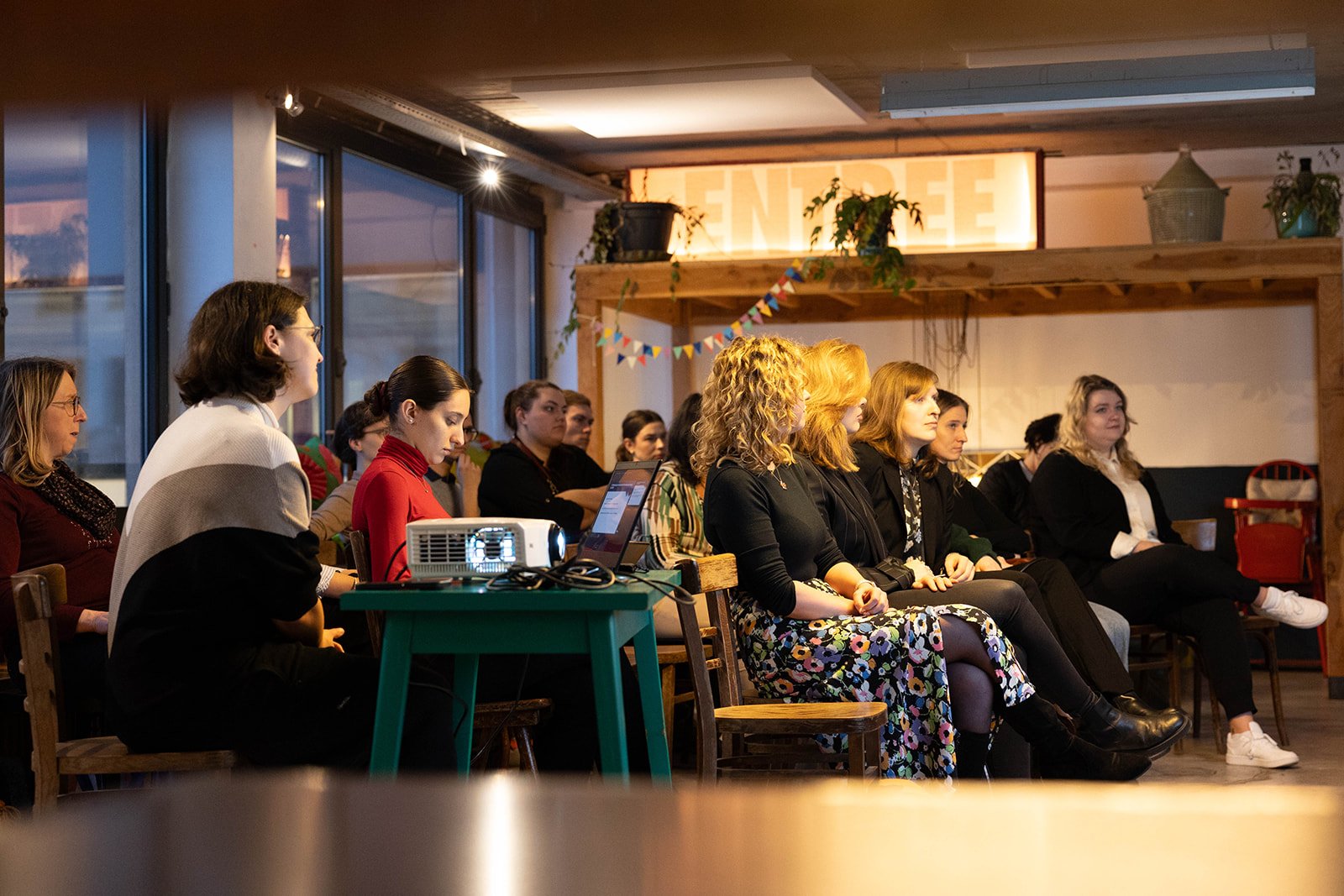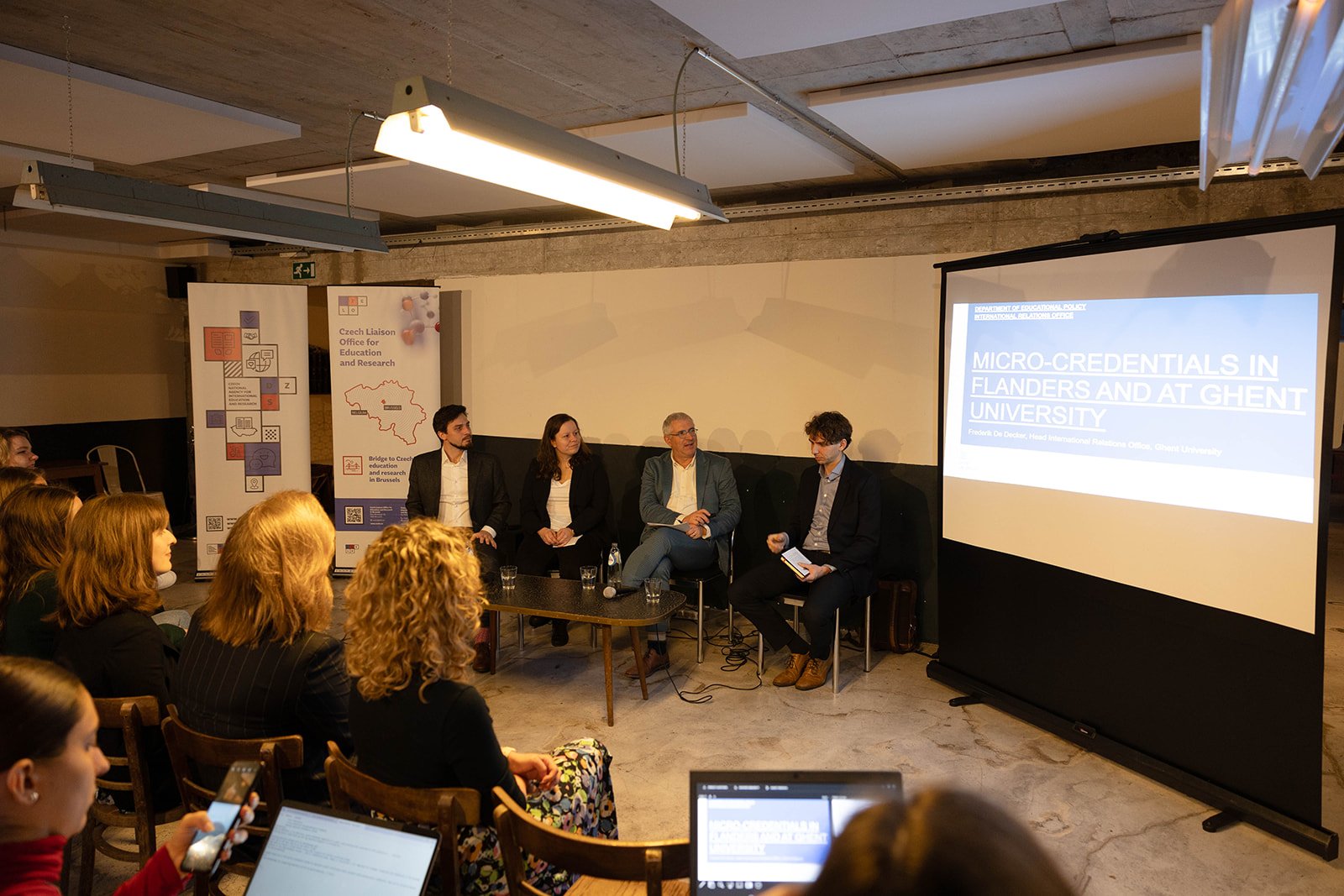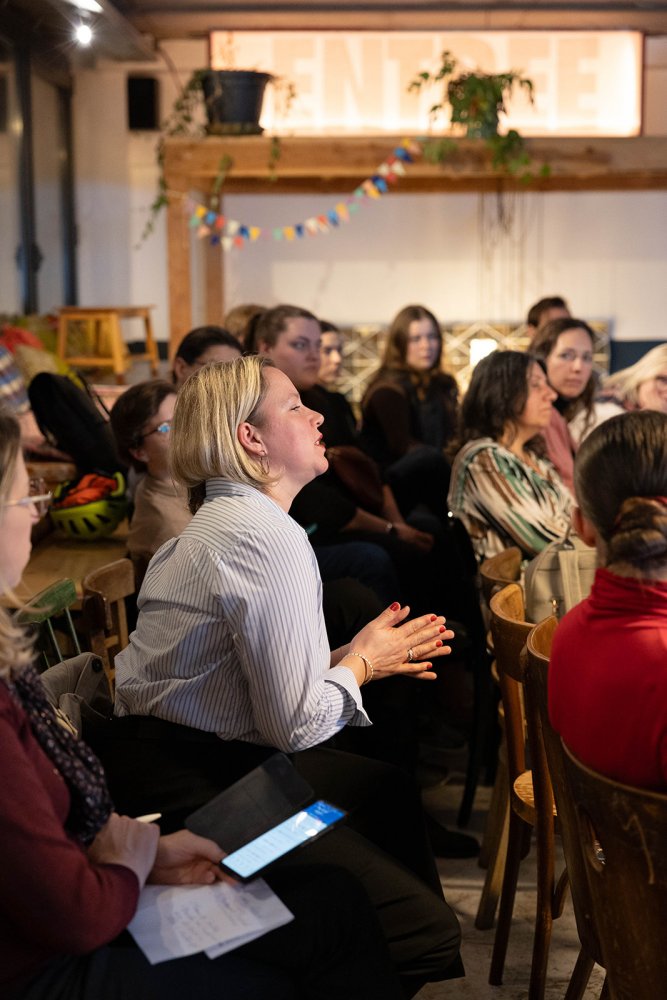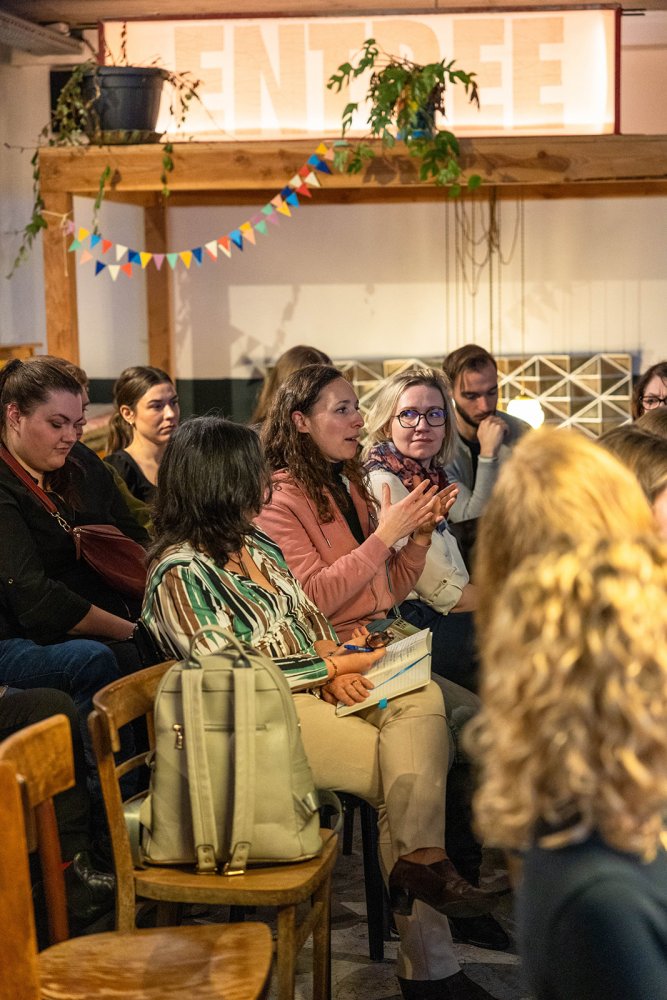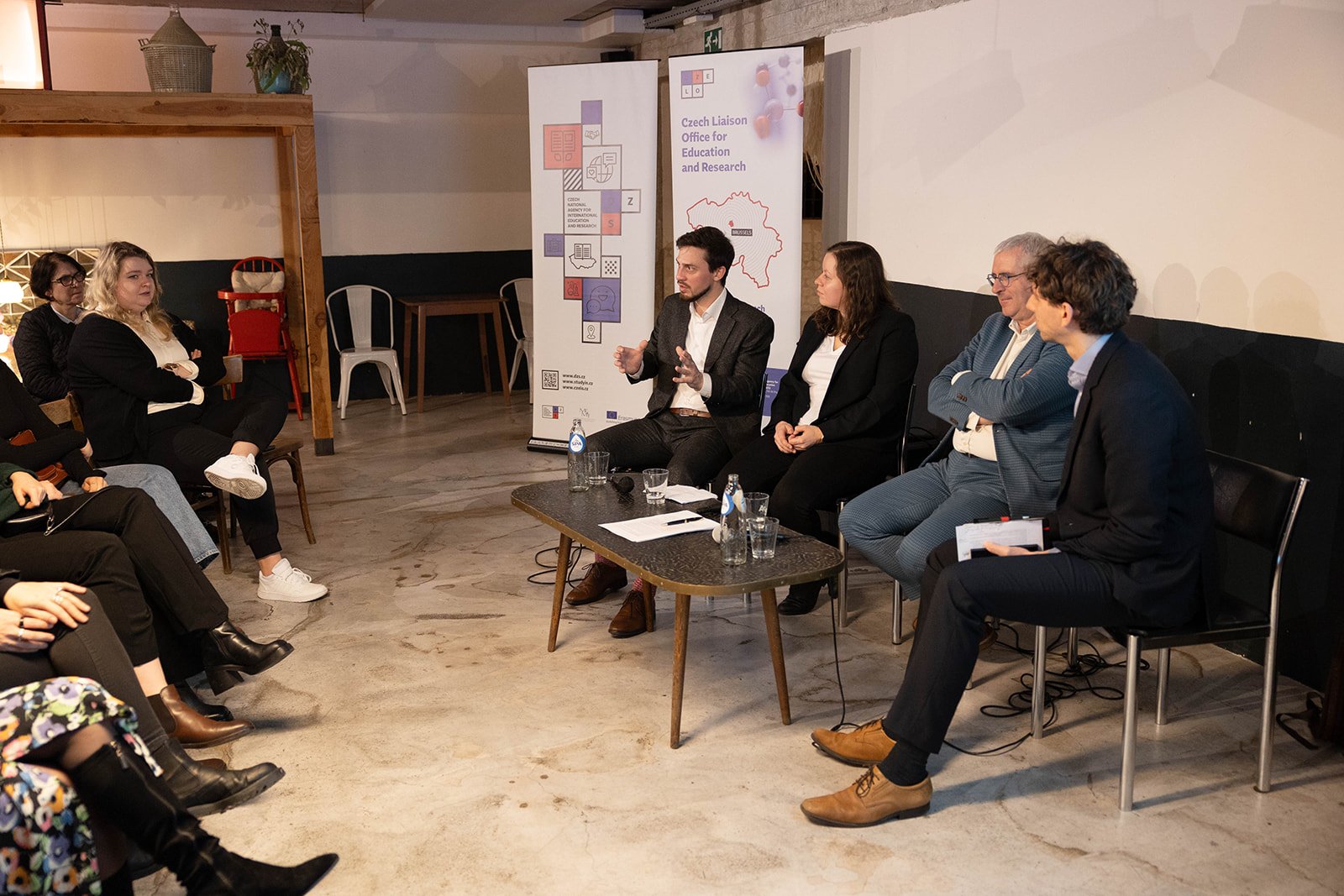This year's first EduCafé introduced microcredentials and their role in higher and adult education
The spring EduCafé on microcredentials from the perspective of Czech and Flemish HEIs attracted almost 30 participants.
This year's first EduCafé took place on Tuesday 26 March at the Kamilou Café in the heart of Brussels. The invitation was accepted by Diana Sýkorová and Jaroslav Švec, who are involved in the project "Improving the accessibility of education at university level through microcredentials" within the Rector's Office of Charles University within the framework of the National Recovery Plan. Frederik De Decker, Head of the International Relations Office of Ghent University and an expert on the topic of microcredentials, provided a Flemish perspective. The debate was moderated by Laurin Reding, Senior Education Advisor and Deputy Head of the Swiss Liaison Office for Research, Innovation and Education SwissCore in Brussels.
The debate focused, amongst others, on the following questions: What common elements and what differences can we see between the Flemish and the Czech approach? How do quality assurance mechanisms work? How to effectively extend the system to courses delivered outside universities? What role do the European University Alliances (Elight and 4EU+) play in the further development of microcredentials and what contribution can we expect from this year's ministerial conference in Tirana in the framework of the Bologna Process?
Differences in approaches between universities and countries
The so-called microcredentials are a type of certificate that allows students and lifelong learners to continuously update their skills and knowledge through small volumens of learning (courses, training, etc.). These options may be one of the answers to the shortage of skilled labour and the technological changes our societies are now undergoing. The hallmark of microcredentials is their high flexibility in the choice of activities and studies even during other work or personal commitments, as well as their inclusiveness and openness to all without distinction. Moreover, microcredentials are not necessarily limited to HEIs, but can also be issued by other organisations such as companies, businesses or colleges.
Although the application of microcredentials and mutual consolidation from 2022 onwards is actively promoted by the European Commission through its Recommendation on a European approach to microcredentials for lifelong learning and employability, approaches so far vary between European HEIs. As revealed by Diana Sýkorová, in the case of Charles University and Czechia, it is the involvement in the aforementioned project within the National Recovery Plan, so the initiative comes from the ministries, in this case the Ministry of Education, Youth and Sports. All 26 Czech public HEIs are involved, which should greatly simplify the consolidation process across Czechia. The outputs of this project, which will run until June this year, include, among other things, the design of a unified certificate format, the preparation of a methodology, the creation of a common online course catalogue and the creation and pilot launch of a unified system for verifying learning outcomes. The Flanders and Ghent University, on the other hand, have a 'bottom-up' approach, initiated by the HEIs themselves, that has been running for more than 20 years, albeit under changing names. At the university, microcredentials now combine courses from bachelor's and master's degrees with lifelong learning and other specific courses, explained Frederik de Decker, who says that microcredentials are his personal interest in addition to his work.
Online or offline? That is (also) the question.
The possible future development of microcredentials was also widely discussed. At the end of May, we will have a ministerial Bologna conference in Tirana, which is expected to adopt a communiqué that will include microcredentials and their importance. As Jaroslav Švec pointed out to the audience, the general public is still not well aware of the possibilities of microcredentials, which should change in the future. Frederick de Decker is of a similar opinion, for whom a trustworthy recognition and quality assurance are a key aspect.
European university alliances are also an important platform for further cooperation and development of microcredentials. However, for microcredentials at international level, the situation is complicated by the need to have in mind the different target groups of students with different needs. Full-time students may prefer full-time courses with mobility opportunities, while lifelong learners can often only participate in online learning due to work and other commitments. The question of 'paper or digital' also applies to the awarding and recognition of credentials. Here too there is no clear consensus among universities, for whom this aspect also raises additional issues with regard to the 'retention' of microcredentials and information about their holders.
At the end of the debate, there were also questions from the audience concerning both the practical possibilities of studying and the possible competitiveness between universities and between the forms of study offered by one university. Here, however, the guests agreed that the issue of microcredentials is not intended to create competition, but rather to help create more flexible environments and structures in which universities, and possibly other providers, can work better together.
See photos from the event by Petra Israël Photography.








